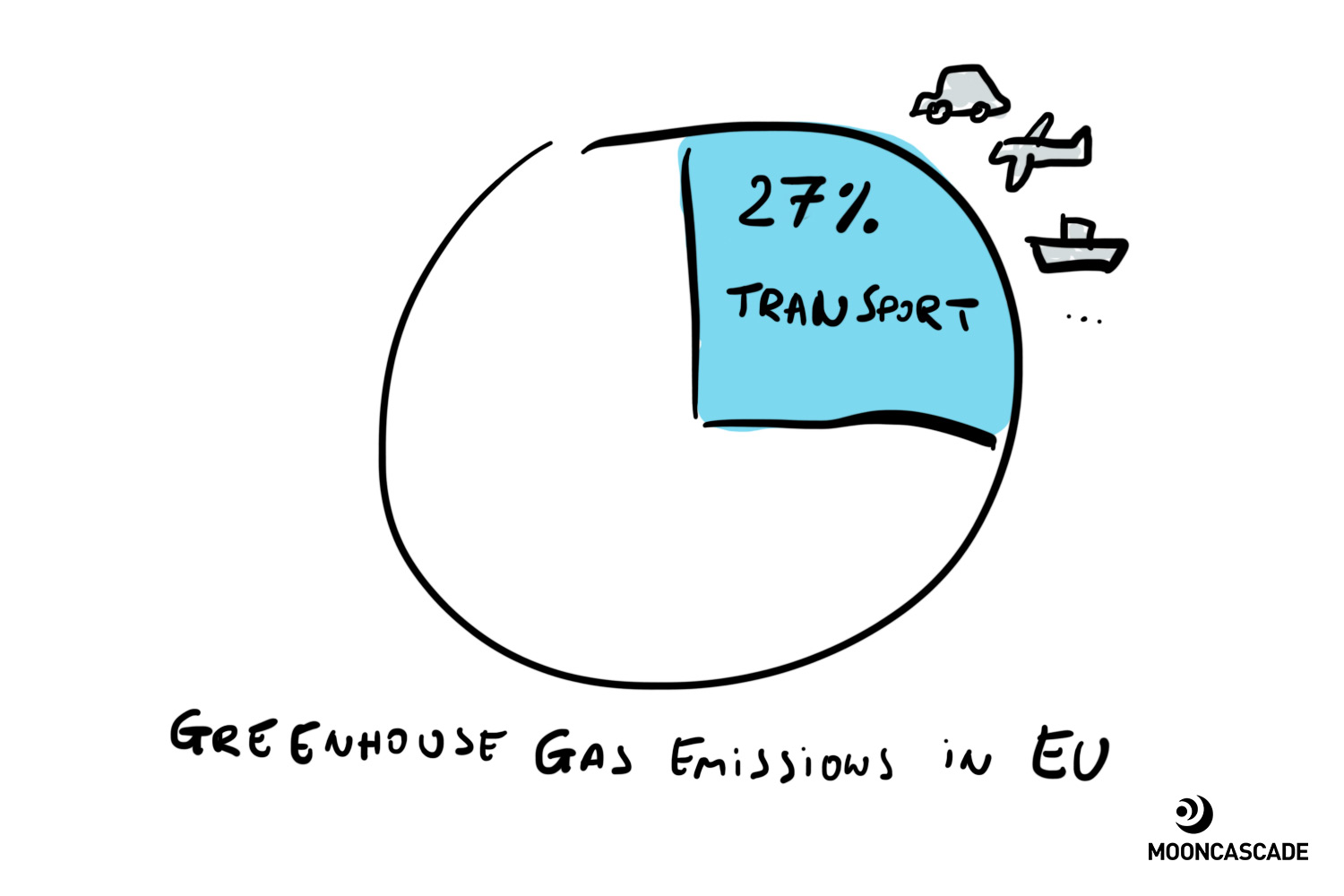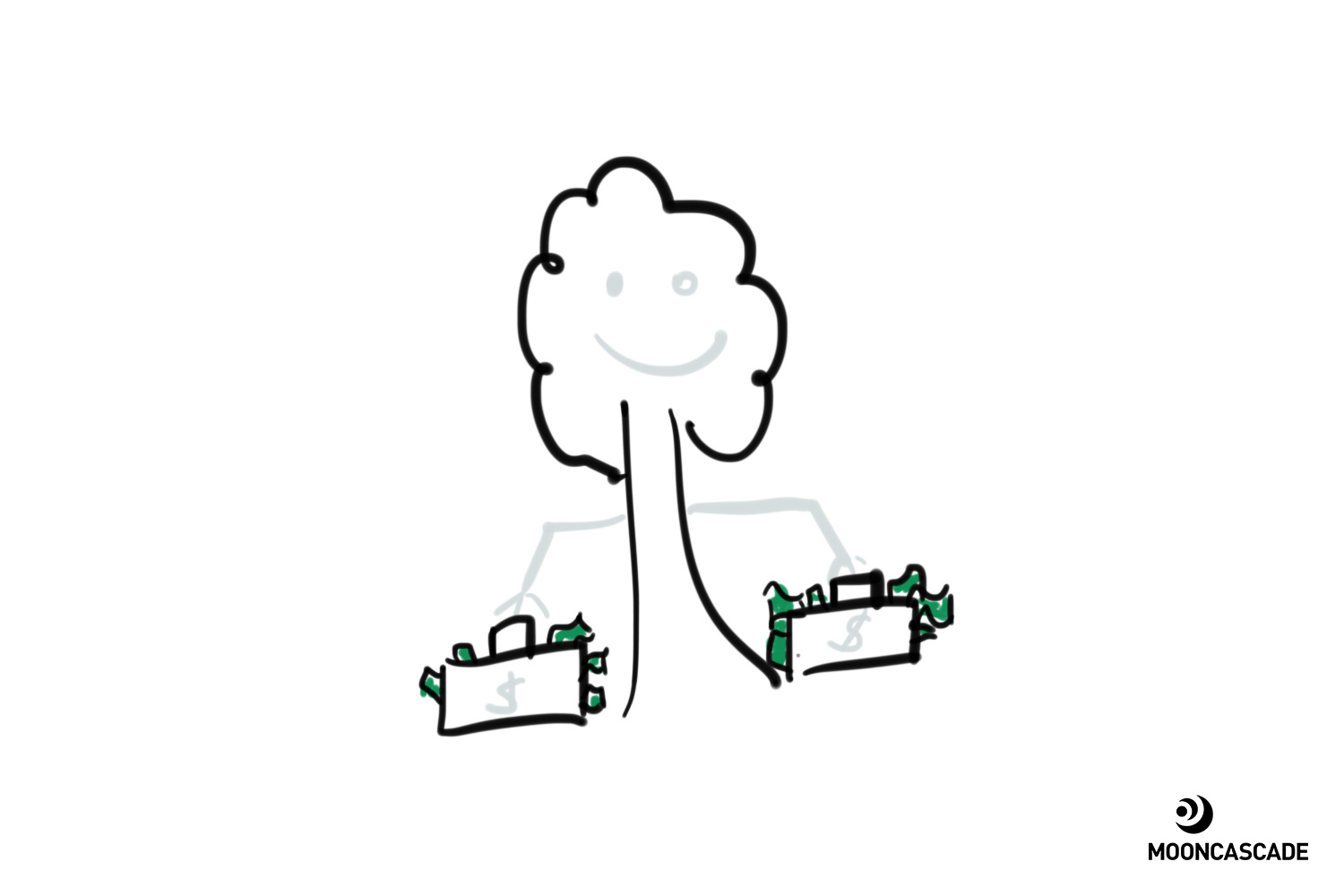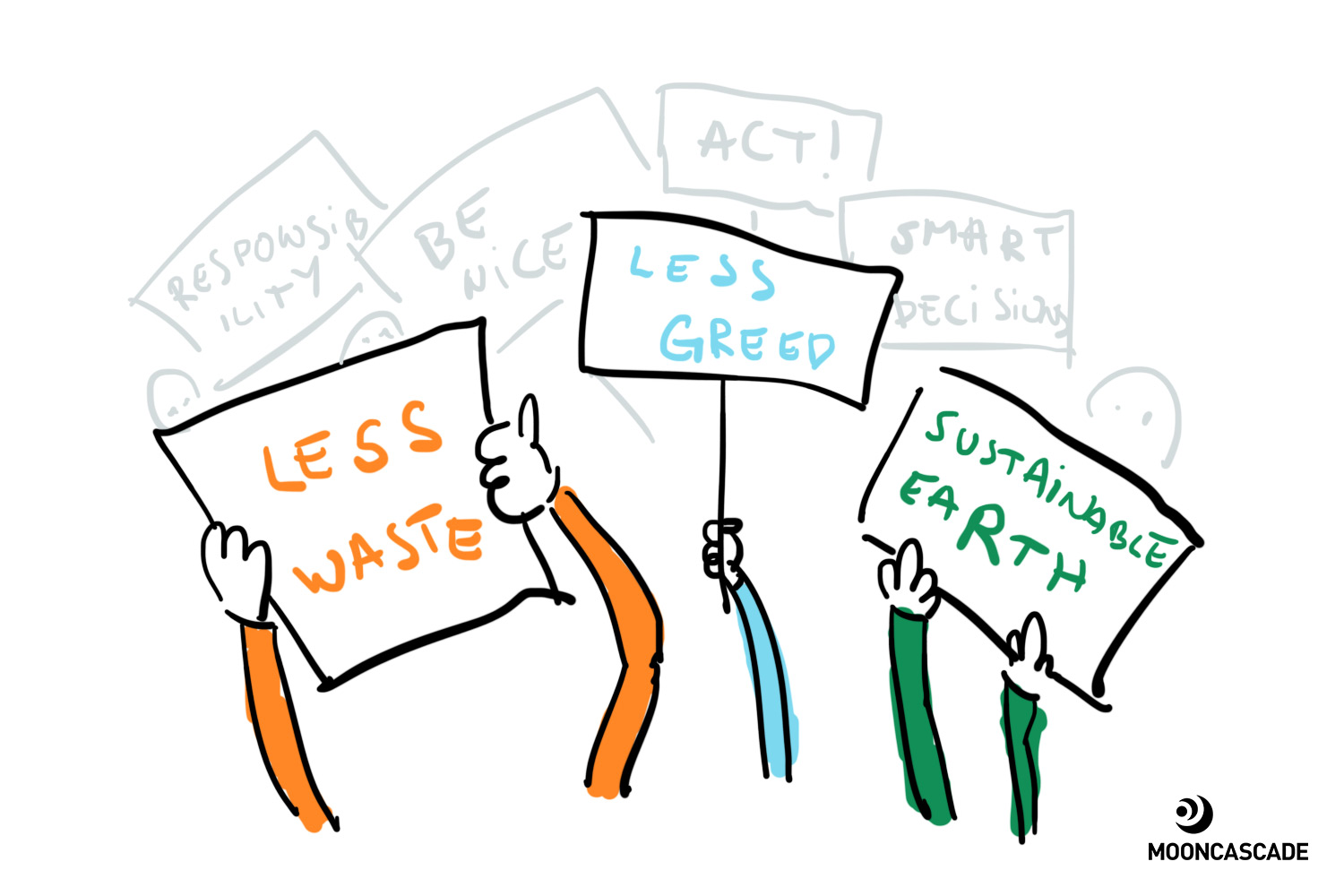Sustainable Business & The Technology Industry
On a recent trip to Berlin, I took part in the Global Climate Strike that took place on September 20. I stood on the corner of the famous Unter den Linden street and watched as thousands of people marched by. And they weren’t alone. It’s estimated that some 4 million protestors organised strikes across the globe during that same week.
The fact is, people are thinking about tomorrow, and they want sustainable business and legislation to ensure they’re around to enjoy it. Climate change, inequality, and the widespread lack of access to basic services affect us all. Scientists predict that by 2050, we’ll have 2 billion more people living in urban environments than today, bringing with it challenges we simply aren’t ready to take on at the moment. It’s evident that we need to find lasting ways to create a future we all want to be a part of.
It would be comfortable to think this is just a challenge for policymakers. After all, they’re the ones planning our cities, passing laws that affect the business environment, and making decisions about taxes and subsidies. However, the best solutions happen when policymakers meet companies and individuals. In this fight for a better future, one can’t do without the other. Companies should think about sustainable business not only because consumer activism is in, but because businesses can contribute to sustainable development in powerful ways. And the larger a company is, the more people it can impact. It’s just a question of whether that impact contributes to sustainability or not. So as Greta Thunberg says, why not take the leading role?
To dive a little deeper, let’s have a look at three global industries that are helping foster sustainable business, and in the process build a sustainable and desirable future for everyone: smart cities, mobility, and financial technologies. We’ll cover some of what’s been done so far, who’s doing it, and how businesses can get involved.
Smart cities

Currently, about 55% of the world’s population lives in cities. It’s estimated that urban areas will account for two thirds of the global population by 2050. In Europe, these figures have already surpassed 70%, and in developing countries, they’re expected to rise even more rapidly than elsewhere.
Anyone keeping an eye on urbanisation knows that population upticks like these will have a serious impact on infrastructure and CO2 levels moving forward. If we want to ensure our cities meet their citizens’ needs in the future—and do so sustainably—we’re going to have to find new ways of providing people with access to basic necessities like transportation, services, housing, and food. We’re going to need sustainable business models and actual sustainable businesses too – both to provide access to those resources, and a sustainable pathway for those that want to provide the resources to follow.
To accomplish these goals, we need to see increased collaboration between public and private sectors across the world. If governments can lay the groundwork for smart cities through policy, businesses can help realise them by developing the infrastructure and legislation that allows sustainable business to thrive, and provide products and services for the urban marketplace of tomorrow. Legislation and innovation should go hand in hand to create urban spaces that aren’t just sustainable, but that provide us with better environments than the ones we live in today. Because let’s face it—a “good enough” attitude isn’t going to inspire change in anyone.
One way to achieve these sustainable business goals is to have local governments target investment for building green infrastructure and renewable energy solutions. They could also create urban wealth funds to help solve the increasingly common housing crisis. Or they could experiment with urban living labs to test new forms of urban design and mobility.
Approaches like these won’t just help build greener, fairer cities and allow for more sustainable business – they’ll stimulate our economies, too. Just look at Copenhagen, a city that aims to be carbon-neutral by 2025. Since 2005, they’ve cut their carbon emissions by 42% and enjoyed an impressive 24% economic growth rate. Sustainable business may seem daunting, but done right, it can become a serious competitive advantage. You just have to know what to look for.
Mobility

One key issue to consider when thinking about how to promote more sustainable business practices in urban areas is mobility. In Europe, for example, transportation accounts for a quarter of all CO2 emissions – and 70% of that is emitted by road transport. These numbers are big, and if we don’t do anything to curb them, they’ll only rise as urbanisation continues.
Luckily, this sector has made serious leaps forward in recent years thanks to an explosion in green mobility offerings. I’m thinking of everything from the scooters and e-bikes consumers see everywhere to last-mile solutions like UPS’ electric delivery trucks, or public transportation options like self-driving electric buses in the city of Tallinn. And of course, all of these are more sustainable businesses than their more traditional counterparts.
Another eco-friendly change you may have encountered in the mobility industry is carbon offsetting. Offsets are a clever, if temporary, way of countering a company’s carbon footprint by funding environmental projects. There’s Lyft, who recently announced a multi-million dollar investment in this. Or Bolt, who – in their quest to become a more sustainable business – have pledged to offset their emissions by 100% in 2025, including those produced by their offices.
That’s one of the reasons why Mooncascade chose to work with Bolt. As a leading mobility company in Europe, they’re aware of their responsibility in building a sustainable future. And so are we. We believe that sustainable business isn’t just about the products you build, it’s about the partnerships you choose, too.
As welcome as these moves towards more sustainable business practices are, they are still just small steps. As the environmental economist Pavan Sukhdev wisely notes, we need to cut our dependency on cars, focus on energy efficiency and renewability, and foster a rapid shift toward less carbon-intensive forms of transportation. In the long run, it won’t be enough to neutralise our carbon emissions—we’ll have to cut them altogether.
Financial services

The challenge of facing increasing urbanisation can be viewed as an opportunity to reassess our strategies for tackling other issues as well. One of these is the question of building cities with equal opportunities for everyone. To do this, we need to ensure access to infrastructure and basic services for all, including the most vulnerable segments of the population. Housing, education, and healthcare are essential here, but so are less talked about elements, like financial services.
Traditionally, banks have been known to exclude large groups of people by refusing service to customers who have low credit scores or an inability to meet minimum deposit requirements. In an increasingly mobile world, having to provide proof of address is also a major obstacle for many foreign workers and digital nomads travelling from country to country.
Companies like Monese, however, have made it their focus to provide banking services to anyone, regardless of background, financial status, or country of residence. Their commitment to this cause is one of the biggest reasons we chose to work with their team in getting their product to market more quickly. Approaches like these help increase equality across society and create sustainability within the financial services sector. Being a fully online banking experience and not having any physical branches also has the added benefit of making a positive impact on the environment. This was never Monese’s primary goal of course, nevertheless the benefits (and the possible more sustainable business practices they represent for the banking sector) can’t be ignored.
Greening finance—or financing green—will be a separate, but equally important, issue moving forward. Instead of having companies pump cash into fossil fuels, we should be asking them to turn their eye toward green initiatives, like the green bond framework started by the city of Malmö. If we want to take the planet’s future into our hands, we have to make sure we invest in it, too.
Sustainable business: how to build a future that lasts.

In the coming years, cities will be the battleground where the fight for sustainability is either won or lost. It’ll take efforts from the public and private sectors alike if we want it to succeed. As businesses, we can’t just sit back in our comfortable offices, dreaming up incremental changes to existing services while ignoring tougher issues like climate change or inequality. We should play an active role in improving urban life for everyone.
This requires new ways of thinking about product development, including partnering with governments, making commitments to meet environmental goals, and focusing on large-scale accessibility. Though it may appear challenging in the short run, sustainable businesses will help build cities that are greener, more efficient, more competitive, and more enjoyable in the long run. Not just for us—but for generations to come.
Want your business to be sustainable too?
We can help you to build scalable, secure and successful products that will have a positive impact on sustainability. Have a look at what we’ve done in mobility or in fintech so far, and get in touch. Together we can make a difference.

